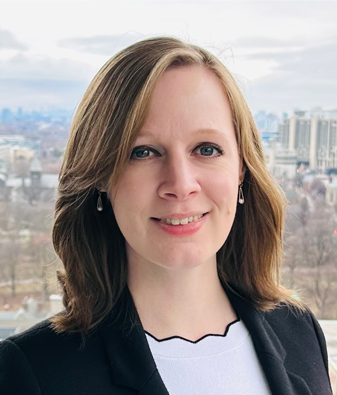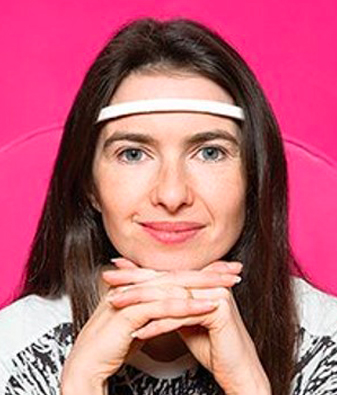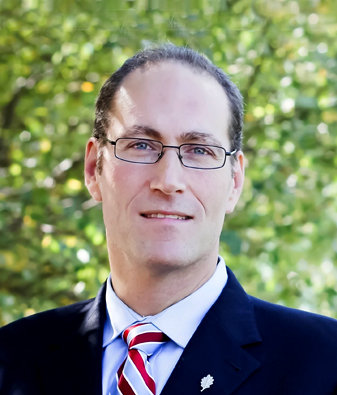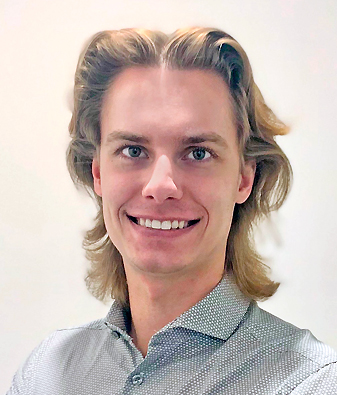Building your own business from scratch is never easy. It takes an independent and entrepreneurial spirit to grow a company, and even the best and the brightest need help taking a business plan to market.
Mike McCarthy, who received a bachelor of arts in 1999 as a member of St. Michael’s College, is CEO of Hypatia and an adjunct professor of computer science at U of T. He believes mentorship isn’t exclusively for students; even successful professionals seek advice.

“Sometimes we call these people consultants or advisors. There's no time when you don't look to others for guidance,” McCarthy says. “A critical skill for entrepreneurs is being able to identify your weaknesses.”
That’s why the A&S Centre for Entrepreneurship is excited to announce the launch of the new A&S Venture Mentoring Service (VMS) to help budding entrepreneurs from the U of T student community find crucial mentors as they enter the workforce, says Tara Etherington, the centre’s inaugural executive director.
Alumni and students will be able to learn more about mentorship in the U of T community in a fireside chat on March 5 taking place during Entrepreneurship Week at the university’s Schwartz Reisman Innovation Campus. Etherington will moderate a discussion with a group of select panelists, all Faculty of Arts & Science alumni and current students.
“The VMS program is grounded in a network of mentors who want to help,” Etherington says. “It doesn't matter what part of the entrepreneurial journey you're at, whether you're looking to get an idea off the ground or are applying for seed grants. This is open to all stages. We want this experience to be about support and individual growth.”

Modelled after MIT’s Venture Mentoring Service, the program assists by matching each mentee with at least two mentors.
“It’s a reverse of what we think group mentoring is and a fantastic model that the MIT VMS team has created,” Etherington says.
The first pilot launches this spring, and in-person meetings between mentors and mentees will take place on the St. George campus. There’s also the opportunity, once the program expands beyond the pilot phase, for mentees to switch in and out of mentoring groups, gaining access to a range of industry professionals.
“It’s an interdisciplinary team approach to mentoring,” Etherington says.
The result is actionable advice entrepreneurs can apply to their future business venture. The service is free and strictly confidential between mentees and mentors, who sign confidentiality agreements to engage in the program.
“One of the greatest benefits of a strong mentorship partnership means having a safe space to hash things out. You're balancing a lot of unknowns,” Etherington says. “The entrepreneurial journey can be very fluid. It can be challenging and sometimes a bit scary. But there's an incredible wealth of mentors we hope to engage in this program who can provide valuable insight for new entrepreneurs to consider.”

Ariel Garten, who earned her bachelor of science in 2002 from U of T as a member of University College is one of those mentors. She is a founder of InteraXon and the creator of Muse, a brain-sensing headband that helps people meditate. Garten’s advice for budding entrepreneurs? Embrace the spirit inside you already.
“Everybody's an entrepreneur at heart, insofar as we have all been the leaders of our own lives,” Garten says. “If you feel like you have some things holding you back, like shyness or an unwillingness to network, those are just thought constructs. Those thought constructs can be worked on with cognitive behavioural therapy or with a good mentor.”
Recent graduates who jump into entrepreneurship tend to solve problems students have, rather than real-world business-to-business problems, Mike suggests, like a hospital protecting itself from ransomware. “One of the things I say to emerging entrepreneurs is don't think about the entrepreneurial journey as getting out and starting your own company. Think about the entrepreneurial journey as learning about things that really matter,” McCarthy says.

Real world experience matters to students such as Adrian Tai, a member of St. Michael’s College and also a panelist. Last winter, the fourth-year undergraduate student in economics joined a job shadowing program available to Arts & Science students. Tai’s mentor, an executive in the financial sector, encouraged him to identify a specific area of interest to pursue. The advice led Tai to a summer internship at Ernst & Young for business consulting.
“This is where mentorship changed my career trajectory. If I didn't join that job shadowing program, I would never have thought about consulting,” Tai says. “If there’s a networking event, definitely go. You can’t go wrong meeting new people.”
Matthew Gehring, who earned a bachelor of commerce in 2021 from U of T as a member of Trinity College, co-founded Apollo Sundials, a high-end custom gifts business. The big thing holding people back from starting their own company, he says, is fear of failure.
“Failure is part of the journey,” Gehring says. “I’m 26. I’ve already worked on four different ideas and four startups. Failure doesn’t mean the journey is done. It’s a stepping-stone to something greater.”
Visit the Venture Mentoring Service for more information and to apply to mentor.

